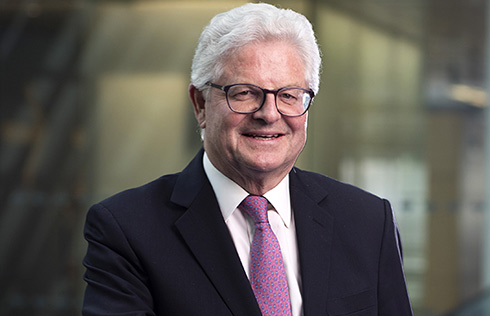Liquidity squeeze set to be biggest risk for 2017
China's money-market liquidity squeeze is about to get worse.
The benchmark seven-day repurchase rate will average 2.65 percent in the first quarter, up from 2.46 percent in the current period and the highest since the start of 2015, according to the median estimate in a Bloomberg News survey of 24 bond traders, investors and analysts.
More than half of the respondents are expecting a record sell-off in China's $7.9 trillion debt market to last until at least the end of March, with the government's deleveraging push and tighter monetary conditions looming as the biggest risks.
Liu Dongliang, a senior analyst at China Merchants Bank Co in Shenzhen, said: "The central bank's attitude towards monetary policy has changed fairly significantly in the past six months. Market participants are anxious as the tightness at year-end is worse than expected. Tougher monetary conditions and deleveraging are having the same negative impact on domestic liquidity."
The average interbank repo rate surged to a 20-month high on Dec 16 on a combination of year-end cash demand and mounting concern over counterparty risks after a brokerage reportedly declined to honor its bond trading agreements.
China's debt market is heading for its biggest monthly decline in at least a decade, ending a record bull run that had been in place since the beginning of 2014 as investors bet the People's Bank of China would keep financing costs low to bolster the economy.
While the PBOC's benchmark policy measures do not signal a change in that stance-interest rates have been on hold for more than a year, and reserve ratio requirements for lenders were last lowered in the first quarter-the central bank has been using other measures to drive up the cost of money in China.
The monetary authority started injecting longer-term funds into the financial system in August, which carry a higher interest rate. The PBOC stopped offering three-month loans through a separate facility the same month and is favoring one-year debt instead, while saying it will "proactively" contain asset bubbles and financial risks.
Ming Ming, head of fixed-income research at Citic Securities Co, said: "Liquidity will be the biggest risk in 2017. Smaller financial institutions will face more difficulties in borrowing and the cost will be higher. The big picture in 2017 is deleverage."
All bar one of the respondents in the Bloomberg survey said liquidity will be "tightly balanced" or "tilt toward tight" in 2017. One-third of the respondents predicted the central bank will raise the interest rates used in reverse repo operations in the first quarter, according to the survey conducted from Dec 22 to Dec 26.
The cost of one-year interest-rate swaps, a gauge of market expectations for the benchmark seven-day repurchase rate over a year, is heading for the biggest quarterly advance in three years, jumping 83 basis points since the end of September to 3.38 percent. That's higher than the 10-year sovereign yield at 3.16 percent, according to ChinaBond data.
Bloomberg























